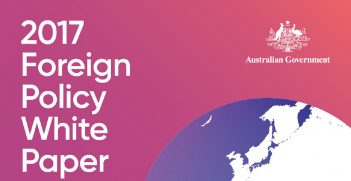World Leaders Tackle Antimicrobial Resistance

If you are not already concerned about the rise in antimicrobial resistance undermining the world’s precious antibiotics, this week’s discussion at the United Nations is a wake-up call. The analysis at the General Assembly’s High Level Meeting on 21 September provides impetus to drive important global reforms around the use of antibiotics.
Our public health experts have been developing and implementing strategies to maintain the efficacy of our existing antibiotics through “One Health” policy action but time is running out as evidence emerges of how those clever bugs respond to our overuse, misuse and abuse of antibiotics.
Creating new antibiotics will help but this could take many years and reaching consensus on how to responsibly access and use them will also be crucial. Developing a global agreement adds a whole new dimension to the politically sensitive debates on access to medicines.
Reasons for the global failure to protect the efficacy of antibiotics will be aired at this week’s General Assembly in New York. Antimicrobial resistance (AMR) is the classic ‘wicked problem’: its global scope has massive health and budgetary implications; the industry sectors affected are difficult to penetrate and politically sensitive to alter; and the complex global transmission of AMR—circulating from and through humans, animals and environments—is not yet sufficiently monitored or understood. Notwithstanding this complexity, developing strategies to contain AMR is essential.
Focus on food
Some of these sensitive health, political and economic agendas have already generated policy responses within the various international institutions. For example, the important work of a little known international body that develops harmonised international food standards to protect consumer health, the Codex Alimentarius Commission, should be followed more closely, including by the media.
Significant work on food safety is undertaken by Codex. This body was established by and has input from the World Health Organization (WHO) and the Food and Agriculture Organization, and it works collaboratively with the World Organization for Animal Health. The food safety standards that inform the World Trade Organization’s (WTO) operational framework and govern international trade in food are set by Codex’ standards, and Codex standards are taken into account in WTO trade disputes where food imports are blocked.
Input from Australia and several other countries at the 39th session of Codex pushed to broaden Codex’ work on AMR by developing guidance for “Minimising the occurrence of AMR in the food chain and transmission of risks to consumers through best practice at the national level [and] Minimising the risk of transmission of AMR via food in international trade”.
The outcome was an agreement to establish a working group chaired by the UK and co-chaired by Australia and the US to develop the terms of reference for input to an intergovernmental task force on AMR to be hosted by Korea in 2017.
It is 10 years since Codex developed its Code of Practice to Minimise and Contain Antimicrobial Resistance, which will now be updated. One of the objectives of this task force is to ensure the members have the necessary guidance to enable coherent management of antimicrobial resistance along the food chain.
Notwithstanding Codex claims of scientific assessment, both the working group and the Korean intergovernmental task force will undoubtedly be politically sensitive given the focus on global food production.
WTO, FTAs and international trade
Another key institution integral to trade in food is the WTO. Always wary and politically sensitive to access to medicine issues, it has remained outside of AMR debates but now is using its trilateral arrangement with the WHO and World Intellectual Property Organization to discuss AMR. Its focus on access and innovation includes input from the UK’s important strategic contribution—The O’Neil AMR Review.
Also relevant are the free trade agreements (FTA) that focus on loosening government regulation around international trade in food by promoting harmonisation and trade facilitation strategies. These agreements should be reassessed for unintended consequences affecting food safety or inadvertently promoting AMR.
Australian trade negotiators and health experts should take note of a report from the Australian parliament’s Joint Standing Committee on Treaties as its members have recognised the dangers of AMR. The committee’s Report 154 records for the first time AMR concerns in relation to FTA commitments:
“The Committee has been alerted to the dangers presented to the health security of Australians by antimicrobial resistance. The Committee recognises the link between microbial resistance and Australia’s current regulatory framework which enables Australia to control antibiotic use. The Committee is aware that this regulatory framework must not be threatened by Australia’s commitments under FTAs and will be monitoring this area during its examination of future agreements.”
The initiatives outlined above, including the UN dialogue, should contribute to understanding better the dangers of AMR and its transmission through the food chain. But related questions of how food is systematically tested and monitored—imports and domestic production—may be more politically difficult to justify.
Anna George is an adjunct professor with Murdoch University and an associate fellow with the Chatham House Centre for Global Health Security. She is a former Australian ambassador and experienced multilateral negotiator on non-proliferation and disarmament issues, trade and social development policies.
This article is published under a Creative Commons Licence and may be republished with attribution.





